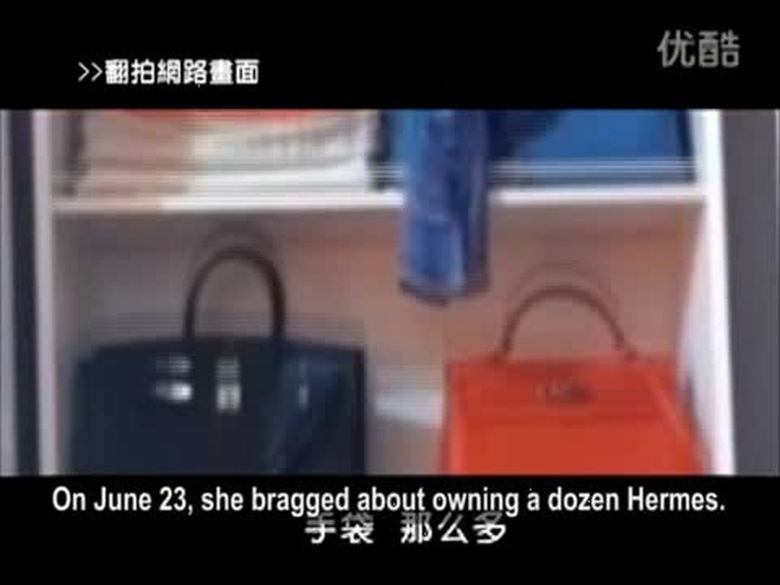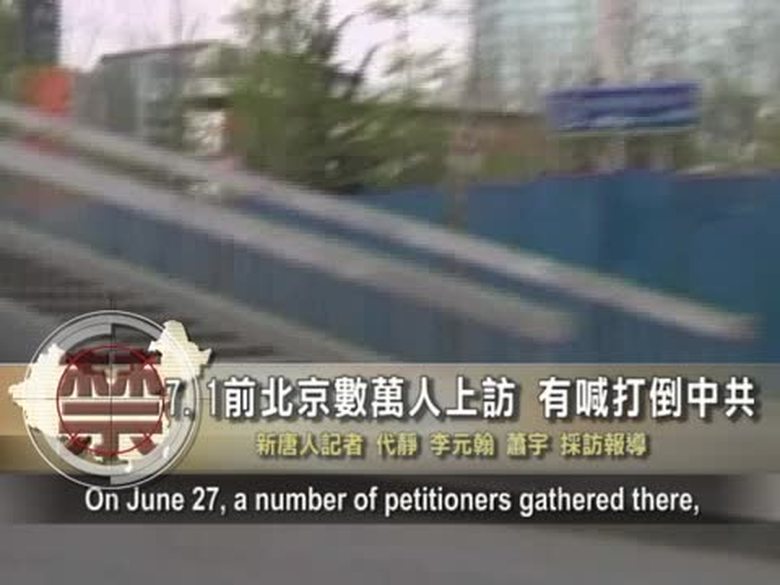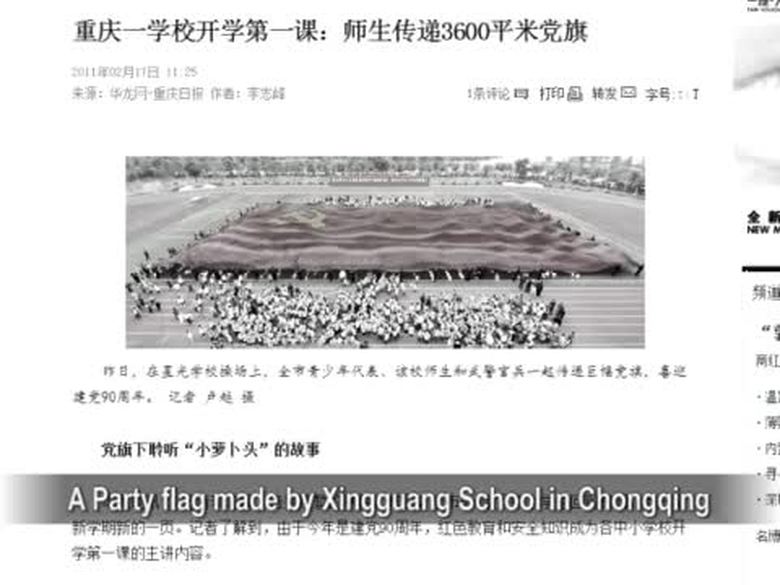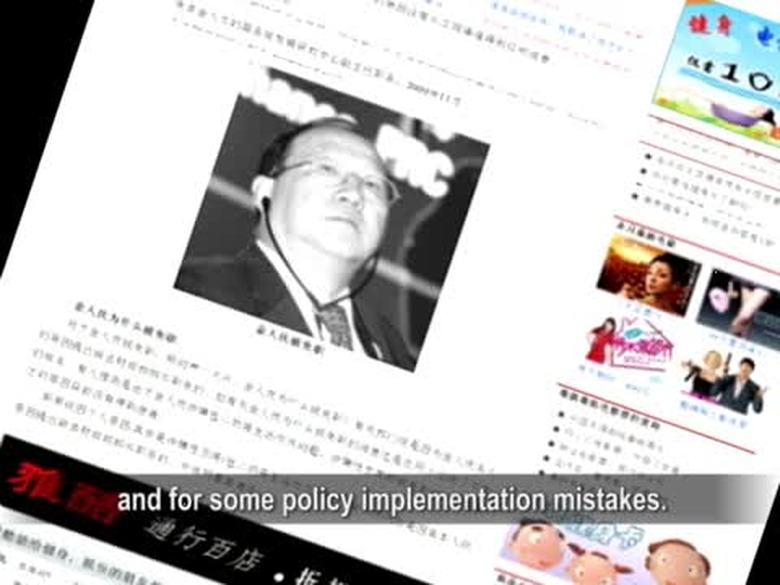【新唐人2011年6月28日訊】大陸地方政府放任「非法垃圾場」存在,造成各地「垃圾圍城」的景象。攝影師王久良,用黃色標籤把遍佈在北京巿郊的「非法垃圾場」一個個標示出來,形成了密密麻麻的黃色「七環」地圖。而不只北京,相同的問題已出現在中國各地。
《廣州日報》27號報導,長期追蹤「非法垃圾場」問題的獨立攝影師王久良,在網路上發表名為「垃圾圍城」系列照片,告訴人們中國各地非法垃圾填埋場污染環境的問題有多嚴重。
填滿了垃圾的幾十米深大坑、焚燒垃圾引發的濃煙、到處都是蚊蠅…王久良說:“他在地圖上標註出來的「非法垃圾場」就有四、五百處,主要分佈在北京巿郊的農村地區。”
2008 年10 月開始追蹤「非法垃圾場」的王久良,曾經和《中國網事》的記者實地探訪一家非法垃圾場,進村不到2公里就聞到濃烈的臭味。穿過樹林,一個足球場大小的垃圾場就在眼前,垃圾的腐敗味道快讓人喘不過氣來。而這些非法垃圾處理場的背後,業者從租地,回收,分揀,到填埋,最後留下一個個被污染的自然環境。王久良感慨:比如一個經營的還不錯的魚塘,幾個月後變成垃圾場。只因為老闆認為「倒垃圾比養魚更賺錢」。美好的自然環境就這樣一個個消失了。
不只北京,相同的問題已出現在中國各地 。比如最近《蘋果日報》報導的廣西昭平縣「黃姚古鎮」,這座千年古鎮,在地方政府的放任下,每天數以噸計的垃圾幾乎沒有經過處理就任意堆放,流出的污水已威脅到下游城鎮的飲水安全。當局只顧賺錢不顧環境的心態,讓秀麗古鎮變成另一座「垃圾圍城」。
有民眾向媒體投訴,各地非法垃圾場林立,主要還是因為垃圾場可以在短時間內賺取暴利。上月底(5月23號)《中國之聲》報導,貴州貴陽市烏當區東風鎮的鎮民向記者投訴:2006年以來,他們鎮裡的耕地被違規興建了三座非法垃圾場,每座佔地80畝左右,全變成了垃圾山。
報導指出,其中的「廣西衝倒土場」的負責人王士兵說,這倒土場是他從別人手裏用人民幣120萬轉手過來的,每年大約付給村民租金15萬,加上村委的管理費幾萬塊。倒土場每輛車每次收100塊錢,用每天100輛車次計算,倒土場每年收益300多萬。烏當區現有的倒土場,也就是這類的非法垃圾場,共有20多座。
烏當區城管局渣土所的解釋是,他們有進行監管,興建倒土場的申請手續必須由當地村委會上報鎮政府,經過烏當區林業局、環保局、國土局和規劃局蓋章,及現場勘察後才能上報市局核可。
不過《中國之聲》的記者隨後採訪了烏當區國土局和規劃局,他們卻都表示,倒土場的審批不須經過他們,只由城管負責管理。目前基本上也沒甚麼申報手續,因為建設局本身也不太重視。
新唐人記者曾耀賢、王明宇綜合報導。
Fishponds Turned Into Dumps
Due to Chinese local governments』 scant regulation,
illegal dumps surrounding cities are commonplace.
Photographer Wang Jiuliang labeled illegal dumps
with yellow stickers on a map of Beijing.
Illegal dumps are now a nationwide issue in China.
Photographer Wang Jiuliang posted online
his photo collection named City in Dumps,
Guangzhou Daily reported on June 27.
Wang aims to underline the problem of illegal dumps.
His photos show large pits filled with garbage,
and heavy black smoke from burning dumps.
There are 4~500 illegal dumps surrounding Beijing.
Wang started to focus on illegal dumps in Oct 2008.
He once visited one illegal dump with a reporter.
They could smell strong stink in the village.
There was a dump of the size of a football field,
with a disgusting and unbearable smell.
Through land rental, recycling, garbage sorting and
landfill, dumps gradually destroyed the environment.
Wang sighed over fishponds being turned into dumps,
because “dumps are more profitable than fishponds”.
The environment has been destroyed in this way.
Illegal dumps are a nationwide phenomenon.
Hong Kong』s Apple Daily reported that in Huangyao,
an ancient town, tons of wastes are dumped daily.
Without government regulations or recycling,
the town』s sewage has endangered the downstream cities.
A scenic old town was turned into a city of dumps,
as local officials only care about generating profits.
Some residents have complained to the media that
the proliferation of dumps is due to their profits.
Chinese media reported on May 23 that since 2006,
three illegal dumps had been built in Dongfeng,
Guiyang City of Guizhou. Farm lands were seized
and each dump was 53,000 square meters.
The head of Guangxi Dumps, Wang Shibing said,
this dump was purchased with RMB 1.2 million.
He pays an annual rent of RMB 150,000 to villagers,
as well as some administration fees to village officials.
He collects RMB 100 for garbage dumped per truck.
There are approximately 100 cars a day.
The dump can earn over RMB 3 per year.
There are about 20 such illegal dumps in the region.
The local official explained that they did supervise,
and the dump establishment was reported to
the local village committee and the town authorities,
with the approval of Bureau of Forestry, Bureau of
Environment Protection and Land and Resources.
When asked by a reporter from China Voice,
the local bureau of Land and planning said that
they were not in charge of approving dump setups.
This was in the responsibility of city administration.
Also, there are no application procedures.
NTD reporters Zeng Yaoxian and Wang Mingyu
看下一集

【禁聞】溫家寶訪歐 人權抗議如影隨形

【禁聞】“紅十字會總經理”炫富 遭圍觀

【禁聞】“群體滅絕罪”國際罪犯 現身北京

【禁聞】7.1前北京數萬人上訪 有喊打倒中共

【禁聞】中共黨慶掀紅潮 耗資萬億失民心

【禁聞】維基解密:前中共財長中臺美人計

【禁聞】國際法庭通緝卡札菲 中國民眾叫好

【禁聞論壇】大學,上還是不上?!

【禁言博客】我只為丁俊輝 李娜喝采

【禁聞】中共建黨90週年自稱“朋友遍天下”

【禁聞】黨報稱黨員先進遭轟 建黨宣傳挨批

【禁聞】圍剿“郭美美”全民要真相

【禁聞】台灣再籲美出售F-16

【禁聞】溫家寶訪歐 網友:只嘴講 沒行動

【禁聞論壇】國籍與護照

【禁聞】互聯網CEO“唱紅”網民“唱衰”








